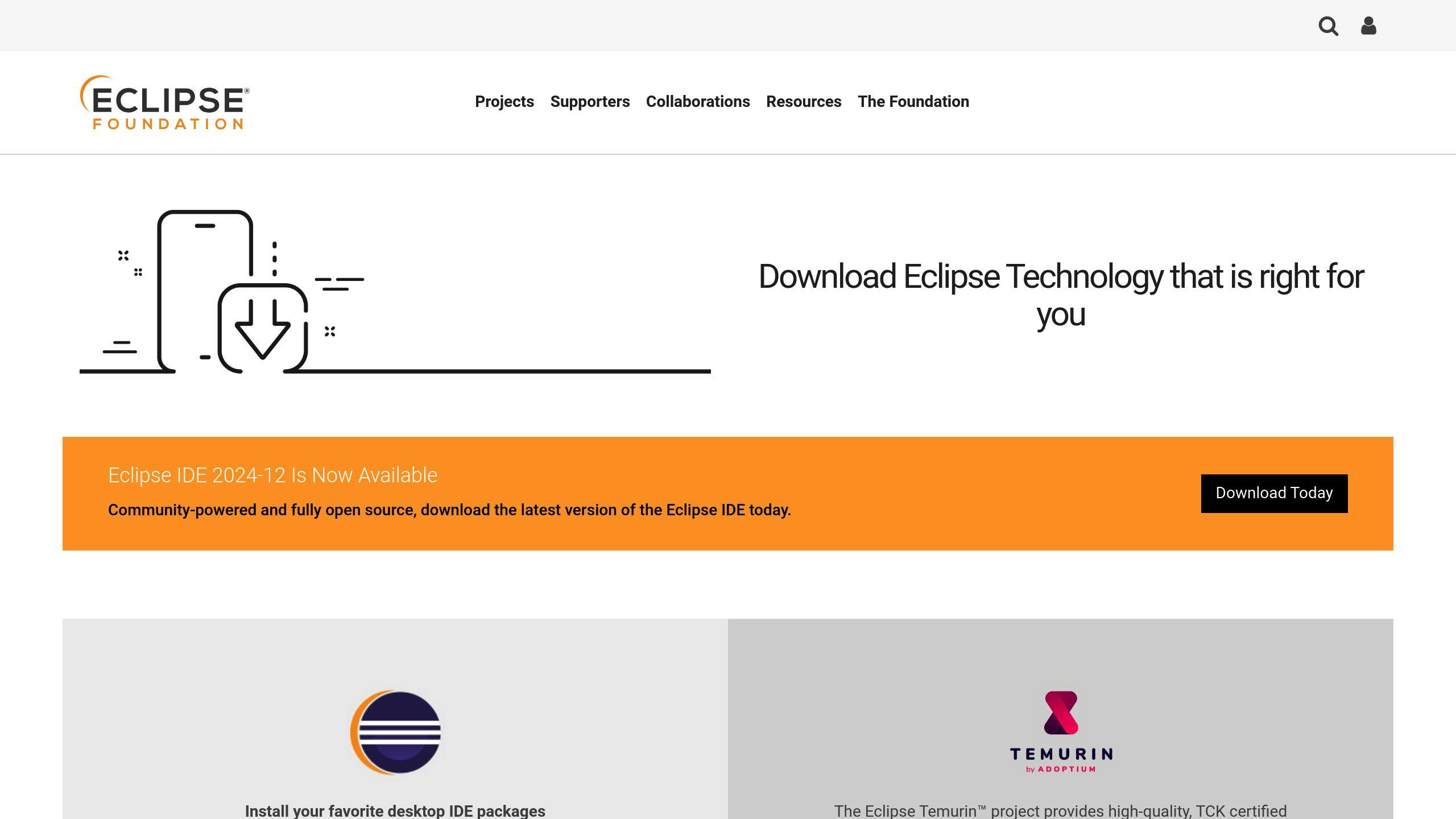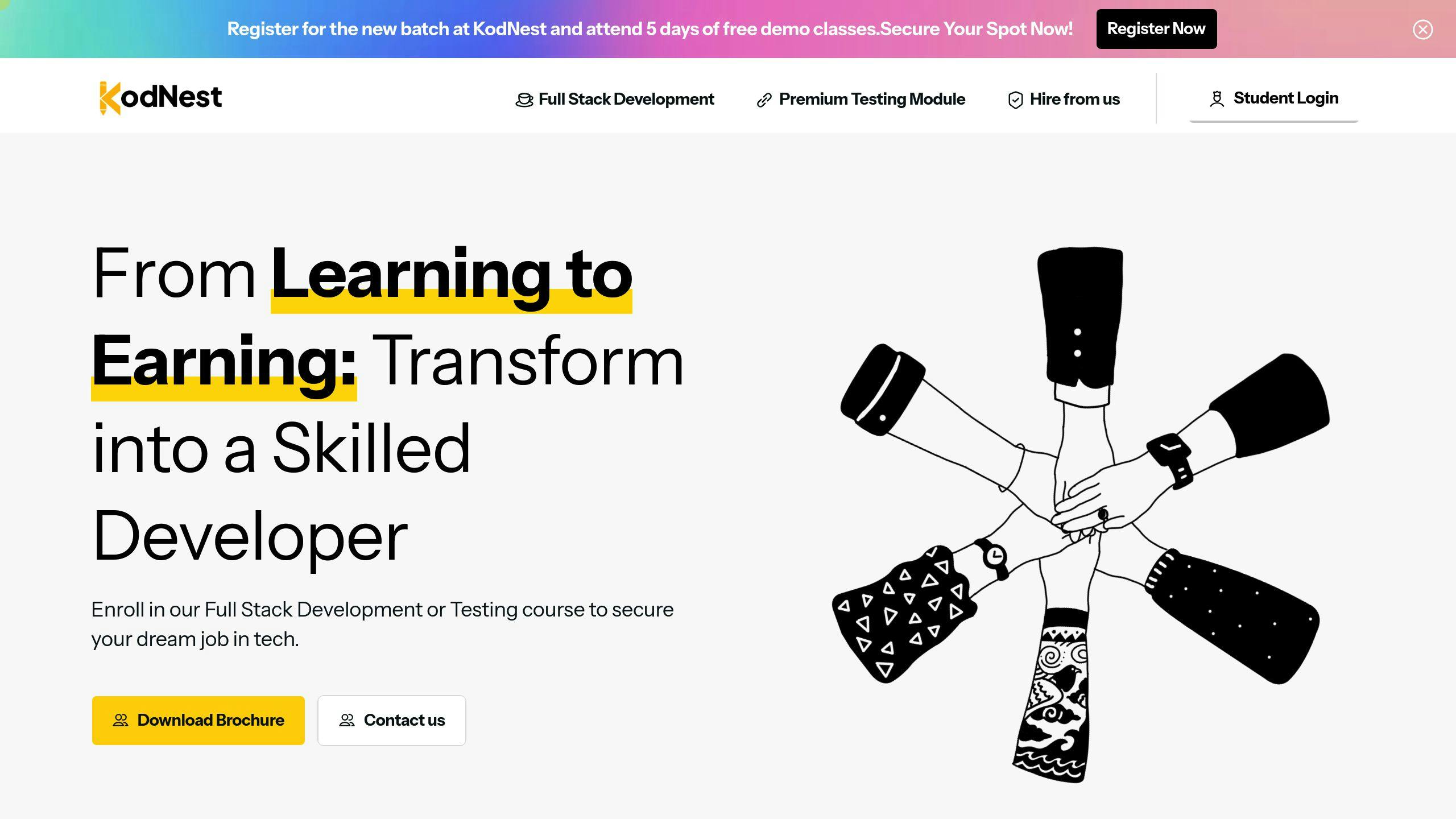Want to become a Java developer without a computer science degree? It’s absolutely doable. Java is a widely-used programming language with a strong job market, making it a great choice for career changers. With consistent effort, you can develop job-ready skills in 6–12 months. Here’s how:
- Learn Core Java Concepts: Focus on basics like data types, loops, and problem-solving (2–3 months).
- Build Practical Projects: Start with small apps like a calculator or to-do list (3–4 months).
- Master Tools: Use IDEs like Eclipse or IntelliJ IDEA, and version control tools like Git (2–3 months).
- Prepare for Jobs: Build a portfolio, practice coding challenges, and ace technical interviews.
Resources to get started: Books like Head First Java, platforms like Codecademy, and tools like Spring Boot and GitHub. With dedication and hands-on practice, you can transition into Java development and unlock exciting career opportunities.
How I Learned to Code in 4 Months & Got a Job!
Learning the Basics of Java
Starting with Java means getting a handle on the core programming concepts. Here’s a breakdown of what to focus on and how to approach learning effectively.
Key Java Concepts for Beginners
To get comfortable with Java, it’s important to focus on the basics. This includes understanding:
- Core Programming Fundamentals: Learn about data types (like arrays and collections) and control structures (loops and conditionals).
- Problem-Solving Skills: Develop logical thinking and approach problems with algorithmic solutions.
- Best Practices: Pay attention to organizing your code and familiarize yourself with basic design patterns.
Once you have a handle on these, the right tools and resources can help you deepen your skills and apply them effectively.
Beginner-Friendly Books and Courses
If you’re just starting out, "Head First Java" by Kathy Sierra and Bert Bates is a great choice. It simplifies tough concepts with visuals, making it ideal for beginners [1]. For online learning, consider these platforms based on how you like to learn:
- Codecademy: Offers interactive exercises with instant feedback, perfect for hands-on learners [4].
- Udemy: Features video-based courses that often include project work.
- edX: Provides structured courses from universities for a more in-depth approach.
These resources will help you build a strong foundation, which you can then expand by tackling small projects.
Practicing with Small Java Projects
Books and courses are just the start. To truly learn Java, you need to apply your knowledge. Start with simple projects and gradually increase complexity. For example:
- Begin with a basic calculator app.
- Move on to creating a to-do list.
- Eventually, try building a task manager that integrates multiple Java concepts.
When working on projects, keep these tips in mind:
- Use version control tools like Git from the beginning [3].
- Write clean, well-documented code to develop professional habits.
- Engage with Java communities on platforms like Reddit to ask questions and share experiences.
The key is consistent practice. Each project should not only reinforce what you’ve learned but also introduce new challenges to keep you growing.
Setting Up Tools for Java Programming
If you’re new to computer science, having the right tools is crucial to turn your theoretical knowledge into practical skills.
Choosing an IDE: Eclipse or IntelliJ IDEA

When it comes to Integrated Development Environments (IDEs), Eclipse and IntelliJ IDEA are top choices. Eclipse is free, open-source, and easier for beginners, making it a solid starting point. On the other hand, IntelliJ IDEA is packed with advanced features and professional-grade support but requires more system resources and has a steeper learning curve. For those just starting out, Eclipse might be the safer choice, but if you’re aiming for professional-level development, IntelliJ IDEA is worth considering. Interestingly, 44.9% of developers use IntelliJ IDEA as their go-to IDE [3].
Using Git and GitHub for Version Control
Version control is a must-have skill, and Git and GitHub are the tools to master. Git helps you track changes in your code, while GitHub allows you to share your projects, which can be a great way to showcase your skills to potential employers.
Here are a few essential Git commands:
- git init: Set up a new Git repository.
- git add: Stage changes you want to save.
- git commit: Save your changes with a message describing what you did.
- git push: Upload your changes to a remote repository, like GitHub.
Tools for Full Stack Java Development
For full-stack Java development, you’ll need to get familiar with some key tools:
- Spring Boot: A framework for building reliable web applications.
- Maven or Gradle: Tools for managing project dependencies efficiently.
- Docker: Lets you run applications in isolated environments.
- Jenkins: Automates continuous integration and deployment.
Learning how to use these tools effectively will set you up for success in development roles and make your skill set stand out to employers.
sbb-itb-f454395
Preparing for Java Development Jobs
Getting your first Java development job without a CS degree takes focused preparation and a solid portfolio. This section highlights strategies to help non-CS graduates stand out in the competitive tech job market.
Building a Portfolio with Java Projects
A strong GitHub portfolio can showcase your coding skills to potential employers. Highlight well-organized, documented code and practical projects that demonstrate your expertise in Java and frameworks like Spring Boot. Some project ideas include:
- E-commerce application: Build one using Spring Boot to show database management and user interaction skills.
- Task management system: Create a web-based tool to display your understanding of backend and frontend integration.
- Inventory management app: A simple system that highlights problem-solving and core Java concepts.
These projects should reflect your ability to tackle business challenges with Java. Once your portfolio is ready, focus on preparing for technical interviews.
Practice with Mock Interviews and Coding Challenges
Technical interviews test both your coding ability and how well you explain your thought process. To prepare:
- Use platforms like LeetCode and HackerRank to practice coding challenges, especially on data structures and algorithms.
- Try Pramp for peer-to-peer mock interviews to sharpen your problem-solving and communication skills.
- Commit to regular practice – aim for 2–3 hours daily to build consistency and confidence.
Clear communication is just as important as coding skills during interviews, so practice explaining your solutions step by step.
Using KodNest for Job Placement Support

KodNest provides resources tailored for those switching to Java development careers. Their services include mentorship, mock interviews, real-world projects, and career guidance. Programs are available in two formats:
| Program Type | Cost |
|---|---|
| Offline | ₹31,999 |
| Online | ₹26,999 |
These programs are designed to help bridge the gap between learning and landing a job, offering structured support to boost your placement chances.
Combining a well-crafted portfolio, consistent interview practice, and professional guidance can set you up for success in a Java development career, even without a traditional CS degree.
Other Career Options in IT
While Java development offers a reliable career path, non-CS graduates have plenty of other IT roles to explore. These roles make good use of programming skills and problem-solving abilities.
IT Roles Beyond Java Development
The IT field is full of opportunities beyond Java development. Here are some roles that stand out:
| Role | Key Skills |
|---|---|
| Cloud Computing Specialist | AWS/Azure, Infrastructure Management |
| Cybersecurity Analyst | Security Protocols, Network Defense |
| Data Analyst | SQL, Data Visualization, Statistics |
| IT Administrator | System Management, Network Configuration |
| Machine Learning Engineer | Python, Statistics, ML Algorithms |
Having a background in Java can be helpful for some of these roles, such as cybersecurity, where secure coding knowledge is a plus [5].
Further Education and Certifications
Certifications can boost your IT career by showcasing your expertise. Start with beginner-friendly certifications and work your way up to advanced ones as you gain experience.
Entry-Level Certifications:
- CompTIA A+: Covers IT basics and fundamentals.
- AWS Certified Cloud Practitioner: A good starting point for cloud computing.
- CCNA (Cisco Certified Network Associate): Great for networking professionals.
Advanced Certifications:
- CISSP (Certified Information Systems Security Professional): Ideal for cybersecurity roles.
- AWS Certified Developer: Focused on cloud development.
- Professional Machine Learning Engineer: Tailored for AI/ML professionals.
In IT, the learning never stops. Technology changes fast, so staying updated is essential. Regularly upskill through certifications, join professional groups, and attend industry events to network and stay informed about new opportunities.
Java development is a solid choice, but exploring these other IT roles might help you find the career path that best matches your skills and interests.
Steps to Start Your Java Career
Key Takeaways
To kick off your Java career, focus on three main areas: Java fundamentals, practical experience, and career preparation. Start by learning the basics of Java using resources like Codecademy, Udemy, or the beginner-friendly book Head First Java [1].
Gain practical experience by working on coding projects. Set up your development environment with tools like Eclipse or IntelliJ IDEA and use Git and GitHub for version control. These tools help you build a workflow that many employers look for [3].
For additional support, platforms like KodNest offer mock interviews, mentorship, and placement assistance. Their online programs start at ₹26,999.
Roadmap to Begin Your Java Journey
Here’s a step-by-step guide to help you transition into Java development:
| Phase | Action Steps | Estimated Timeline |
|---|---|---|
| Learning Basics | Take a beginner course, read Head First Java, and practice core Java concepts | 2–3 months |
| Setup Tools | Configure your development environment with Eclipse or IntelliJ IDEA and Git for version control | 2–4 weeks |
| Build Projects | • Develop small apps • Contribute to open-source projects • Create portfolio projects |
3–4 months |
| Prepare for Jobs | • Practice coding on platforms like HackerRank • Get ready for technical interviews • Network with Java professionals |
Ongoing |
Java is a fantastic choice, but remember that the tech industry offers a variety of paths, from cloud computing to data analytics. Many experts emphasize that hands-on skills often outweigh formal education in today’s job market [6].
With dedication and the right tools, you’ll be ready to launch your career in Java development. Java remains a sought-after skill in 2024, providing excellent opportunities for growth.
FAQs
Is Java Developer a good career in 2024?
Java development remains a strong career choice in 2024 due to high demand and plenty of learning resources. Software engineering roles, including Java development, are expected to grow by 24% through 2026 [2].
There are several reasons why Java development is thriving in 2024: the industry’s growth rate of 13% CAGR, the rise of hybrid work setups, and clear paths for career advancement, from junior to senior roles [3]. For those looking to switch careers, Java offers a solid job market, flexible work options, and plenty of opportunities to learn.
To stand out in the job market, it’s important to go beyond just Java programming. Skills like these can give you an edge:
- Version control systems like Git
- Understanding HTTP(S) protocols
- Familiarity with project management tools such as Jira [3]
While transitioning to a Java developer role takes effort, the strong job opportunities and attractive salaries make it a rewarding option in 2024. Focus on mastering the basics, working on real-world projects, and continuously upgrading your technical skills to succeed in this field.





